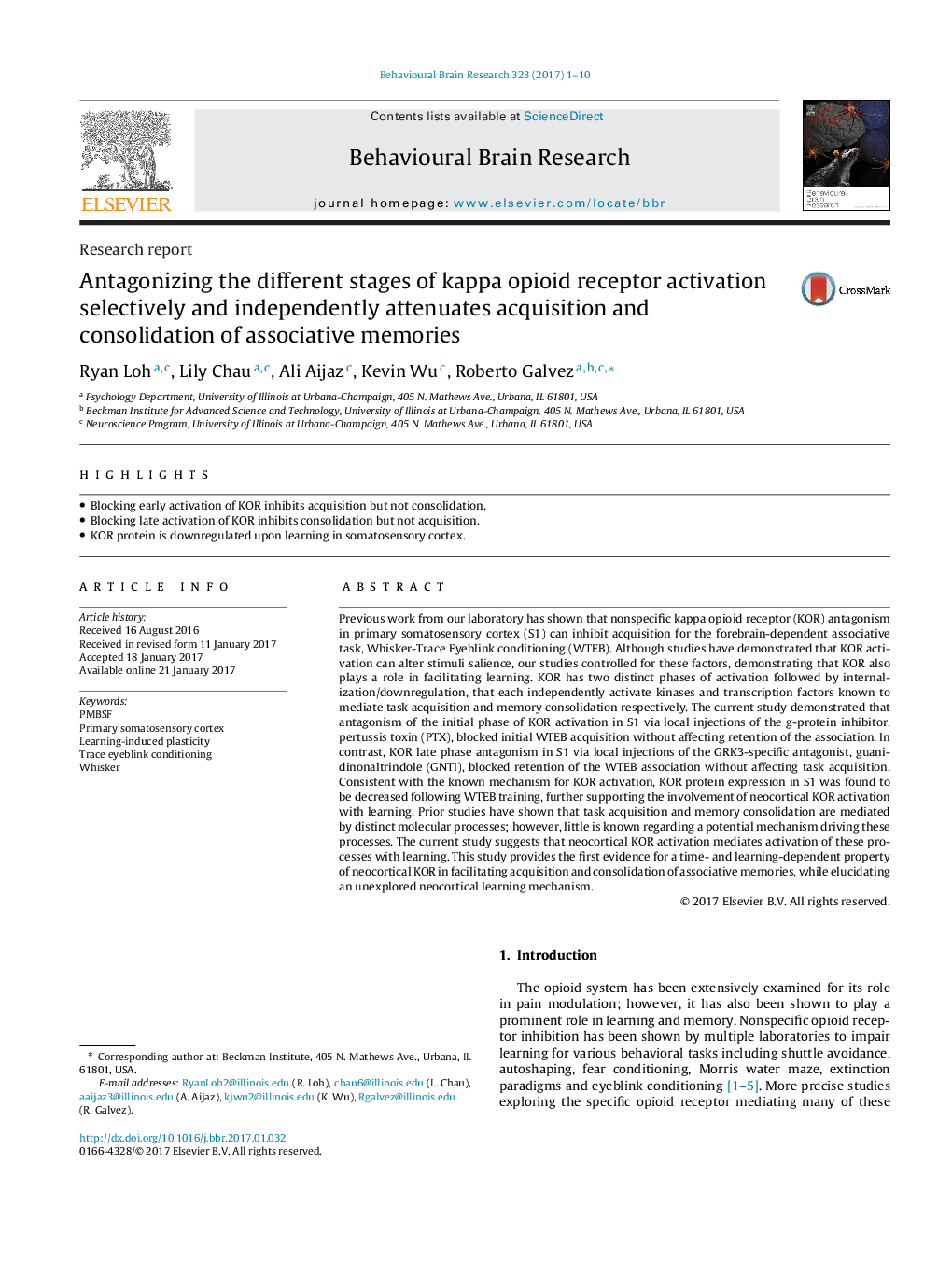| Article ID | Journal | Published Year | Pages | File Type |
|---|---|---|---|---|
| 5735618 | Behavioural Brain Research | 2017 | 10 Pages |
â¢Blocking early activation of KOR inhibits acquisition but not consolidation.â¢Blocking late activation of KOR inhibits consolidation but not acquisition.â¢KOR protein is downregulated upon learning in somatosensory cortex.
Previous work from our laboratory has shown that nonspecific kappa opioid receptor (KOR) antagonism in primary somatosensory cortex (S1) can inhibit acquisition for the forebrain-dependent associative task, Whisker-Trace Eyeblink conditioning (WTEB). Although studies have demonstrated that KOR activation can alter stimuli salience, our studies controlled for these factors, demonstrating that KOR also plays a role in facilitating learning. KOR has two distinct phases of activation followed by internalization/downregulation, that each independently activate kinases and transcription factors known to mediate task acquisition and memory consolidation respectively. The current study demonstrated that antagonism of the initial phase of KOR activation in S1 via local injections of the g-protein inhibitor, pertussis toxin (PTX), blocked initial WTEB acquisition without affecting retention of the association. In contrast, KOR late phase antagonism in S1 via local injections of the GRK3-specific antagonist, guanidinonaltrindole (GNTI), blocked retention of the WTEB association without affecting task acquisition. Consistent with the known mechanism for KOR activation, KOR protein expression in S1 was found to be decreased following WTEB training, further supporting the involvement of neocortical KOR activation with learning. Prior studies have shown that task acquisition and memory consolidation are mediated by distinct molecular processes; however, little is known regarding a potential mechanism driving these processes. The current study suggests that neocortical KOR activation mediates activation of these processes with learning. This study provides the first evidence for a time- and learning-dependent property of neocortical KOR in facilitating acquisition and consolidation of associative memories, while elucidating an unexplored neocortical learning mechanism.
